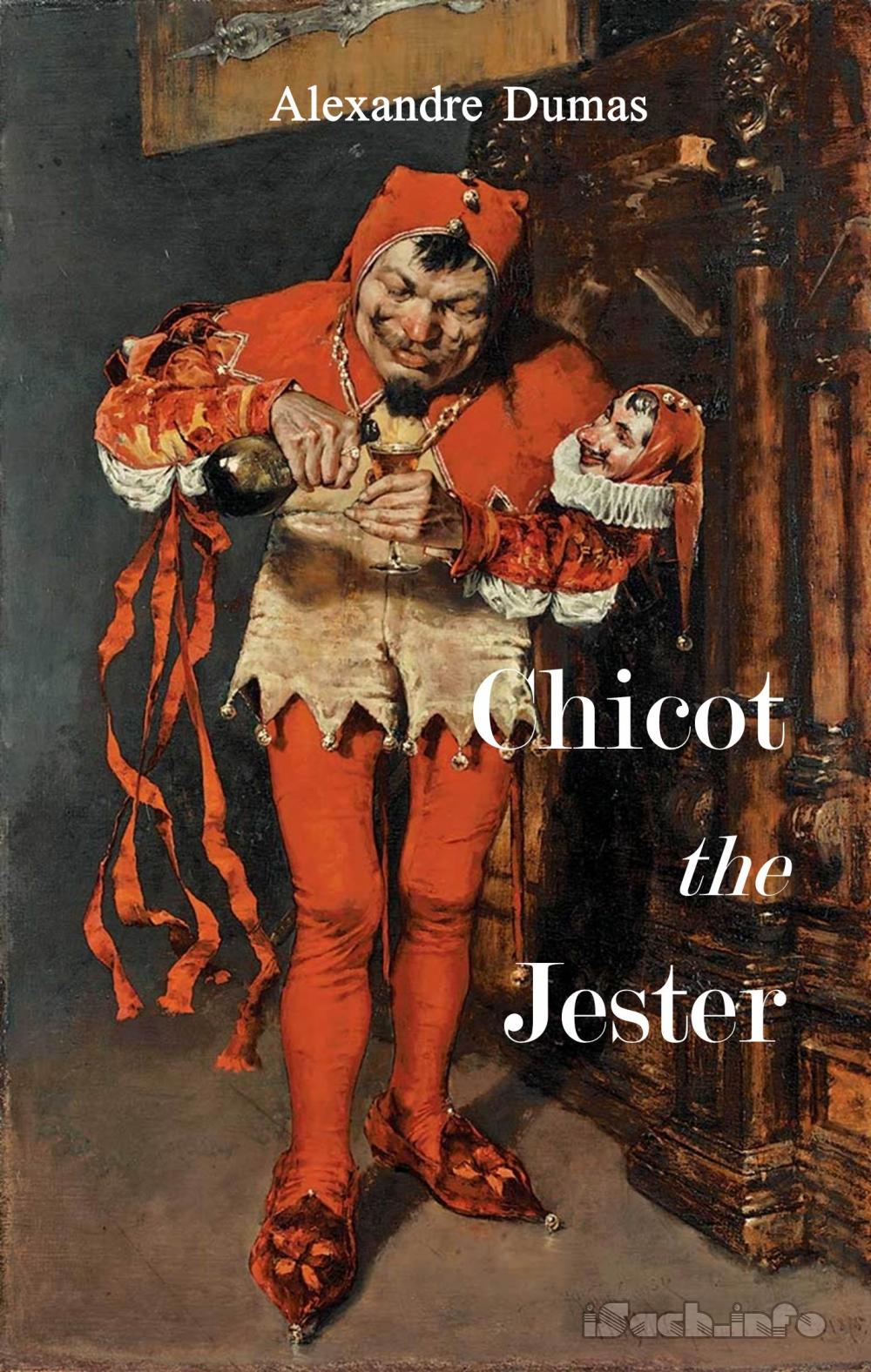Chapter 81: How M. Le Duc D'Anjou Signed, And After Having Signed, Spoke
T
here was a moment's silence. Then the duke said: "Well, M. le Comte, what have you to say to me from the Duc de Guise?""Much, monseigneur."
"They have written to you?"
"No; the duke writes no more since that strange disappearance of Nicholas David. They have come to Paris."
"MM. de Guise are at Paris?"
"Yes, monseigneur."
"I have not seen them."
"They are too prudent to expose themselves or your highness to any risk."
"And I was not told!"
"I tell you now."
"What have they come for?"
"They come, monseigneur, to the rendezvous you gave them."
"That I gave them!"
"Doubtless; on the day when your highness was arrested you received a letter from M. de Guise, and replied to it verbally, through me, that they were to come to Paris from the thirty-first of May to the second of June. It is now the thirty-first of May, and if your highness has forgotten them, they have not forgotten you."
François grew pale. So many events had passed since, that he had forgotten the rendezvous. "It is true," said he, at length, "but the relations which then existed between us exist no longer."
"If that be so, monseigneur, you would do well to tell them, for I believe they think differently."
"How so?"
"You, perhaps, think yourself free as regards them, but they feel bound to you."
"A snare, my dear comte, in which a man does not let himself be taken twice."
"And where was monseigneur taken in a snare?"
"Where? at the Louvre, mordieu."
"Was it the fault of MM. de Guise?"
"I do not say so, but they never assisted me to escape."
"It would have been difficult; they were flying themselves."
"It is true."
"But when you were in Anjou, did they not charge me to tell you that you could always count on them, as they on you, and that the day you marched on Paris, they would do the same?"
"It is true, but I did not march on Paris."
"You are here."
"Yes; but as my brother's ally."
"Monseigneur will permit me to observe that he is more than the ally of the Guises."
"What then?"
"Their accomplice."
The duke bit his lips.
"And you say they charged you to announce their arrival to me?"
"They did me that honour."
"But they did not tell you the motive of their return?"
"They told me all, knowing me to be the confidant of your highness."
"Then they have projects. What are they?"
"The same always."
"And they think them practicable?"
"They look upon them as certain."
"And these projects have for an aim——"
The duke stopped, not daring to finish.
"To make you King of France; yes, monseigneur."
The duke felt the flush of joy mount to his face.
"But," said he "is the moment favorable?"
"Your wisdom must decide."
"My wisdom?"
"Yes, the facts cannot be contradicted. The nomination of the king as head of the League was only a comedy, quickly seen through and appreciated. Now the reaction has commenced, and the entire state is rising against the tyranny of the king and his creatures. Sermons are a call to arms, and churches are places where they curse the king, instead of praying to God. The army trembles with impatience; the bourgeois league together; our emissaries bring in nothing but signatures and new adherents to the League. In a word, the king's reign touches on its close. Now, do you renounce your former projects?"
The duke did not reply.
"Monseigneur knows that he may speak frankly to me."
"I think," said the duke, "that considering my brother has no children, that his health is uncertain, and that after him the crown will come naturally to me, there is no reason why I should compromise my name and my dignity, in a useless struggle, and try to take, with danger, what will come to me in due course."
"Your highness is in error; your brother's throne will only come to you if you take it. MM. de Guise cannot be kings themselves, but they will only allow to reign a king of their own making, a king whom they substitute for the reigning one. They count on your highness, but if you refuse, they will seek another."
"And who will dare to seat himself on the throne of Charlemagne?"
"A Bourbon instead of a Valois, monseigneur; a son of St, Louis, instead of a son of St. Louis."
"The king of Navarre?"
"Why not? He is young, and brave,"
"He is a Huguenot."
"Was he not converted at the St. Bartholomew?"
"Yes, and he abjured afterwards."
"Oh, monseigneur, what he did for his wife, he will do again for the crown."
"They think, then, that I will yield my rights without a struggle."
"The case is provided for."
"I will fight."
"They are men of war."
"I will put myself at the head of the League."
"They are the soul of it."
"I will join my brother."
"Your brother will be dead."
"I will call the kings of Europe to my aid."
"They will think twice before making war on a people."
"My party will stand by me."
"Your party, I believe, consists of M. de Bussy and myself."
"Then I am tied."
"Nearly so. You can do nothing without the Guises; with them, everything. Say the word, and you are king."
The duke walked about for a few minutes, in great agitation, then stopped, and said, "Go on, count."
"This, then, is the plan. In eight days the Fête Dieu will take place, and the king meditates on that day a great procession to the convents of Paris. There, the guards will remain at the door, the king will stop before each altar, kneel down, and say five paters and five aves."
"I know all that."
"He will go to St. Geneviève——"
"Yes."
"He will enter with a suite of five or six persons, and behind them, the doors will be closed."
"And then——"
"Your highness knows the monks who will do the honors of the Abbey to his majesty."
"They will be the same——"
"Who were there when your highness was crowned."
"They will dare to lay hands on the Lord's anointed?"
"Oh! to shave him, only."
"They will never dare to do that to a king."
"He will not be a king then."
"How so?"
"Have you never heard of a holy man who preaches sermons, and is going to perform miracles?"
"Brother Gorenflot?"
"Just so."
"The one who wished to preach the League with his arquebuse on his shoulder?"
"The same."
"Well! they will conduct the king into his cell; once there, he will be asked to sign his abdication, then, when he has signed, Madame de Montpensier will enter, scissors in hand. She wears them now, hanging to her side; they are charming scissors, made of gold, and admirably chased, to do him honor. You understand the rest. We announced to the people that the king, experiencing a holy repentance for his sins, has announced his intention of never more leaving the convent. If there are any who doubt, M. de Guise holds the army, M. le Cardinal the Church, and M. de Mayenne the bourgeois; and with these three powers you can make the people believe what you like."
"But they will accuse me of violence," said the duke.
"You need not be there."
"They will look on me as a usurper."
"Monseigneur forgets the abdication."
"The king will refuse."
"It seems that Brother Gorenflot is not only clever, but strong."
"The plan is then settled?"
"Quite."
"And they do not fear that I shall denounce it?"
"No, monseigneur; for in that case, they have another, not less sure."
"Ah!"
"Yes."
"And this one?"
"I do not know; they thought me too much your friend to trust me with it."
"Well, I yield, count. What must I do?"
"Approve."
"I do."
"Words are not enough."
"What then?"
"Writing."
"It is a folly to suppose I will ever consent to that."
"And why not?"
"If the conspiracy fail——"
"It is just in case it should, that they ask for your signature."
"Then they wish to shelter themselves behind my name?"
"Just so."
"Then I refuse."
"You cannot."
"I cannot refuse?"
"No."
"Are you mad?"
"To refuse is to betray."
"Let them think as they like; at all events I will choose my own danger."
"Monseigneur, you choose badly."
"I will risk it," cried François, endeavoring to keep firm.
"For your own interest I advise you not to do so."
"But I shall compromise myself by signing."
"In refusing, you assassinate yourself."
François shuddered.
"They would dare?" said he.
"They would dare anything, monseigneur. The conspirators have gone so far, that they must succeed at any cost."
The duke, with his usual indecision, felt terribly perplexed.
"I will sign," said he, at last.
"When?"
"To-morrow."
"No, monseigneur; if you sign, it must be at once."
"But M. de Guise must draw up the agreement."
"It is already drawn-here it is;" and Monsoreau drew a paper from his pocket: it was a full adhesion to the scheme. The duke read it though, growing more and more pale as he did so.
"Here is the pen, monseigneur."
"Then I must sign?"
"If you wish to do so; no one forces you."
"Yes, they do, since they menace me with assassination."
"I do not menace you, monseigneur—I only warn you."
"Give me the pen."
And, snatching it eagerly, he signed the paper. Monsoreau watched him with an eye full of hatred and hope, and no sooner had the duke finished than, exclaiming "Ah!" he seized the paper, buttoned it into his doublet, and wrapped his cloak over it.
François looked at him with astonishment, for a flash of ferocious joy played over his face.
"And now, monseigneur, be prudent," said he.
"How so?"
"Do not run about the streets with Aurilly, as you did just now."
"What do you mean?"
"I mean that, this evening, you pursued with your love a woman whom her husband adores, and whom he is jealous of, enough to kill any one who approaches her without permission."
"Is it of you and your wife that you are speaking?"
"Yes, monseigneur. I have married Diana de Méridor; she is mine, and no one shall have her while I live—not even a prince; I swear it by my name and on this poniard!" and he touched with his poniard the breast of the prince, who started back.
"Monsieur, you menace me!" cried François, pale with rage.
"No, monseigneur; once more, I say, I only warn you."
"Of what?"
"That no one shall make love to my wife."
"And I warn you that you are too late, and that some one makes love to her already."
Monsoreau uttered a terrible cry. "Is it you?" cried he.
"You are mad, count!"
"No, I am not; prove your words."
"Who was hidden this evening, twenty steps from your door, with a musket?"
"I."
"Well, comte, during that time there was a man with your wife."
"You saw him go in?"
"I saw him come out."
"By the door?"
"No, by the window."
"Did you recognize him?"
"Yes."
"Name him, monseigneur, or I do not answer for myself."
The duke half smiled.
"M. le Comte," said he, "on my faith as a prince, on my soul, within a week I will tell you his name."
"You swear it."
"I swear it."
"Well, monseigneur, you have a week; but——" said he, touching the paper in his breast.
"Come back in eight days."
"Good! in eight days I shall have regained all my strength, ready for vengeance."



 ePub
ePub A4
A4